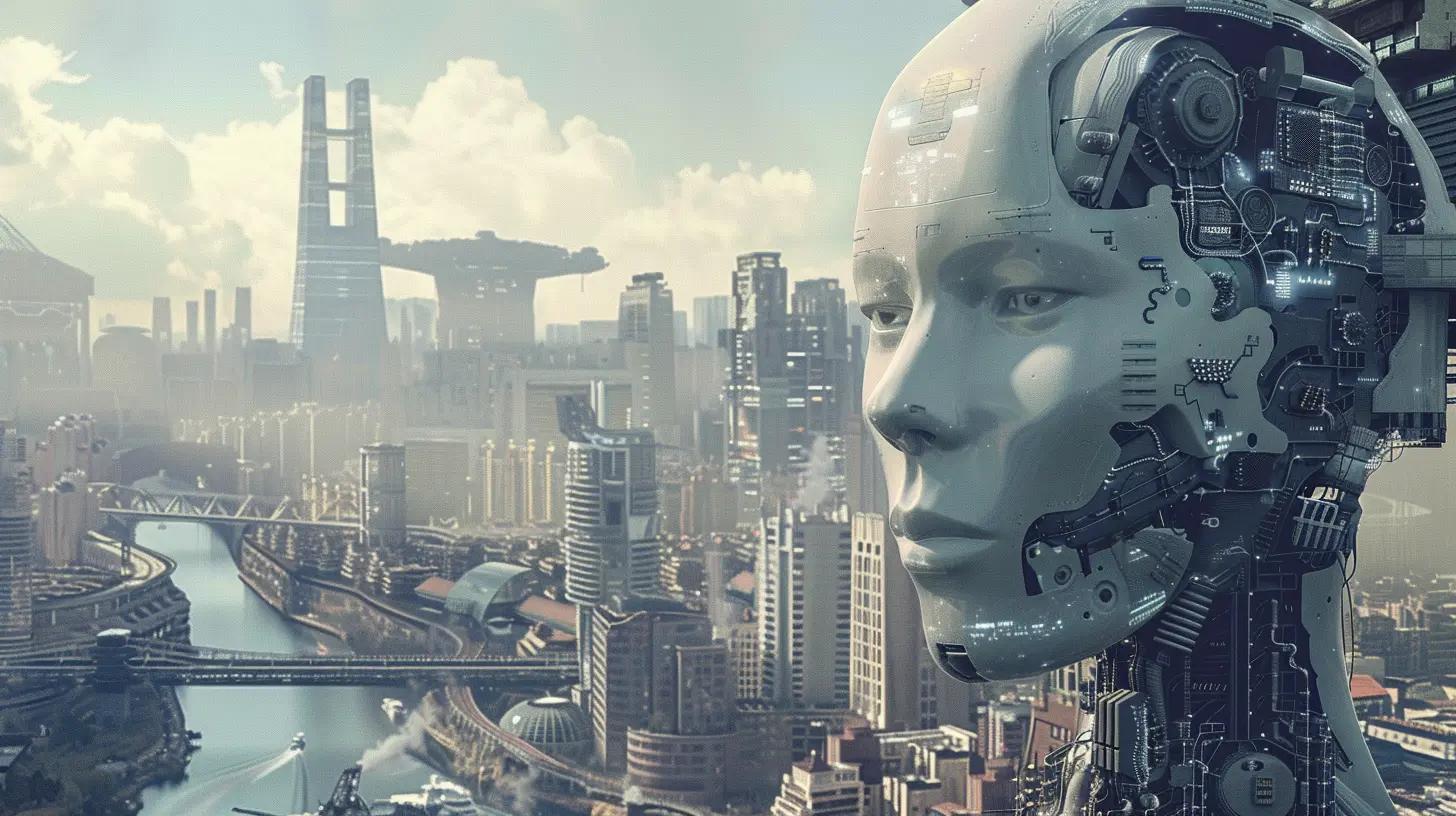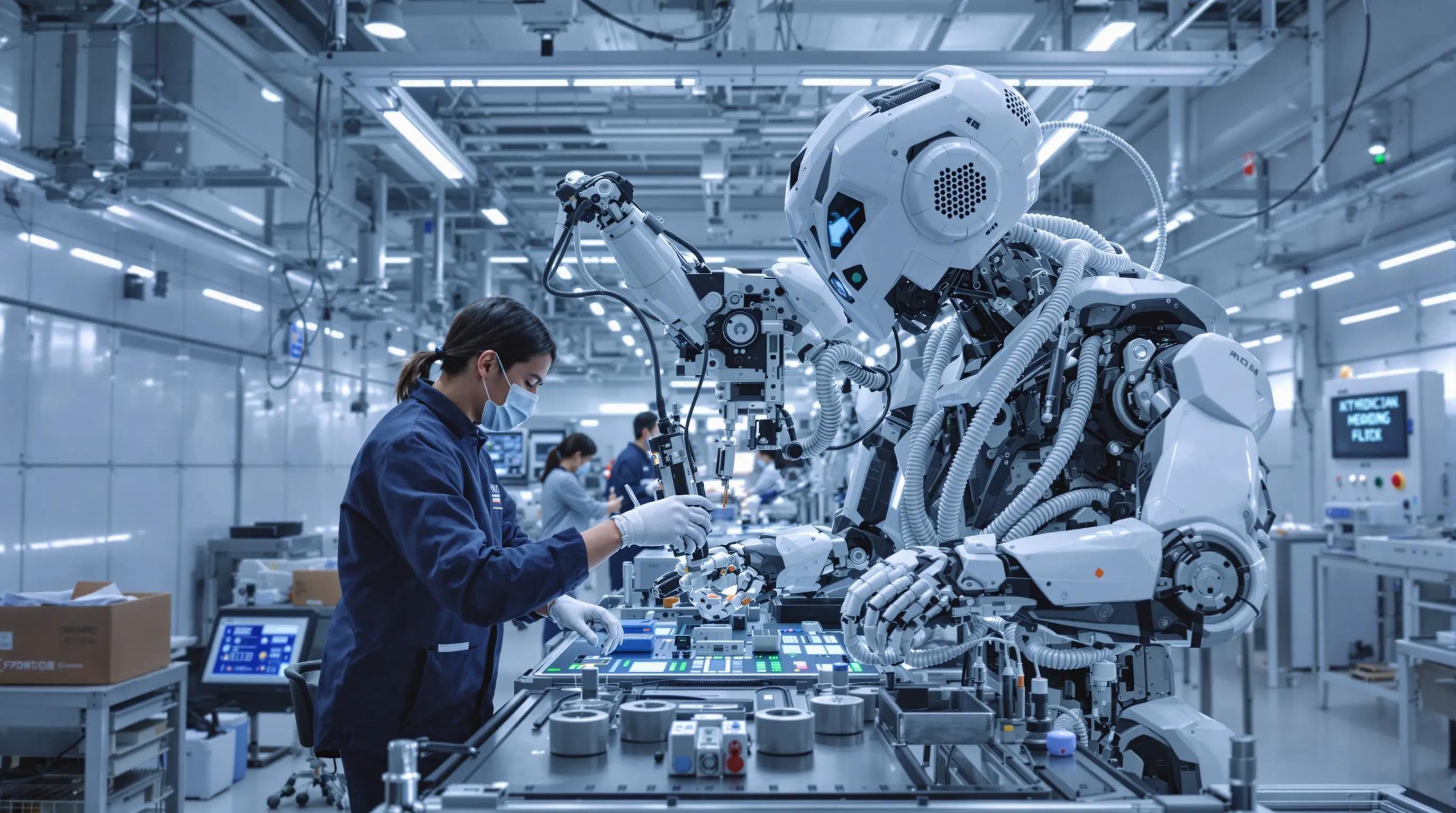April 10, 2024|7 min reading
The Future of Artificial Intelligence Technology

Artificial intelligence (AI) has been a buzzword for years, but it's no longer just a concept or a futuristic idea. AI is now a reality, and it's transforming the way we live and work.
From self-driving cars to virtual assistants, AI technology is already a part of our daily lives. But what does the future hold for this rapidly advancing technology? In this article, we'll explore the future of artificial intelligence and its potential impact on society.
What is Artificial Intelligence?
Before we dive into the future of AI, let's first define what it is. Artificial intelligence is a branch of computer science that focuses on creating intelligent machines that can think and act like humans. These machines are programmed to learn from data, recognize patterns, and make decisions based on that information.
There are two main types of AI: narrow AI and general AI. Narrow AI, also known as weak AI, is designed to perform a specific task, such as playing chess or driving a car. General AI, on the other hand, is a more advanced form of AI that can perform a wide range of tasks and think like a human.
The Current State of AI
AI technology has come a long way in recent years. In the past, AI was limited to simple tasks, but today, it's being used in a variety of industries, including healthcare, finance, and transportation.
One of the most significant advancements in AI technology is deep learning, a subset of machine learning that uses artificial neural networks to analyze and learn from data. This technology has enabled AI to perform complex tasks, such as image and speech recognition, with a high level of accuracy.
Another significant development in AI is natural language processing (NLP), which allows machines to understand and respond to human language. This technology is the backbone of virtual assistants like Siri and Alexa, and it's also being used in chatbots for customer service.
The Future of AI
So, what does the future hold for AI technology? Here are some potential advancements and applications that we can expect to see in the coming years.
Autonomous Vehicles
Self-driving cars are already on the roads, but the technology is still in its early stages. In the future, we can expect to see more advanced autonomous vehicles that can navigate complex environments and make decisions in real-time.
These vehicles will not only make our roads safer, but they will also reduce traffic and improve transportation efficiency. They may even eliminate the need for car ownership, as people can simply summon a self-driving car whenever they need one.
Healthcare
AI has the potential to revolutionize healthcare by improving diagnosis and treatment. With the help of AI, doctors can analyze patient data and medical records to make more accurate diagnoses and create personalized treatment plans.
AI can also assist in drug discovery and development, as well as predicting and preventing diseases. This technology has the potential to save lives and improve the overall quality of healthcare.
Education
AI technology can also transform the education sector. With the help of AI, teachers can create personalized learning experiences for students based on their individual needs and learning styles.
AI-powered virtual tutors can also provide students with additional support and guidance, helping them to learn at their own pace. This technology can also assist in grading and assessment, freeing up teachers' time to focus on other tasks.
Customer Service
Chatbots are already being used in customer service, but in the future, we can expect to see more advanced AI-powered virtual assistants that can handle complex inquiries and provide personalized support.
These virtual assistants will be able to understand and respond to natural language, making the customer service experience more efficient and seamless. They can also analyze customer data to provide personalized recommendations and offers.
Potential Challenges and Concerns
While the future of AI is exciting, there are also potential challenges and concerns that need to be addressed. Here are some of the most significant issues that may arise as AI technology continues to advance.
Job Displacement
One of the most significant concerns surrounding AI is the potential displacement of jobs. As machines become more advanced and capable of performing complex tasks, there is a fear that they will replace human workers.
However, experts believe that while AI may eliminate some jobs, it will also create new ones. As AI technology continues to evolve, there will be a growing demand for skilled workers who can develop, maintain, and improve these systems.
Bias and Ethics
Another concern is the potential for AI systems to perpetuate bias and discrimination. AI algorithms are only as unbiased as the data they are trained on, and if that data is biased, the system will be as well.
There is also the issue of ethics in AI, particularly in areas like autonomous weapons and surveillance. As AI technology becomes more advanced, it's essential to have regulations and guidelines in place to ensure it is used ethically and responsibly.
How to Prepare for the Future of AI
As AI technology continues to advance, it's essential to prepare for its potential impact. Here are some steps you can take to stay ahead of the curve.
Stay Informed
The first step is to stay informed about the latest advancements and applications of AI technology. Follow industry leaders and experts, attend conferences and workshops, and read articles and books on the subject.
Develop New Skills
As AI technology evolves, there will be a growing demand for workers with skills in areas like data science, machine learning, and natural language processing. Consider developing these skills to stay competitive in the job market.
Embrace Change
The future of AI is uncertain, and it's impossible to predict exactly how it will impact our lives. However, it's essential to embrace change and be open to new opportunities and possibilities that AI technology may bring.
Conclusion
The future of AI is exciting and full of potential. From self-driving cars to personalized healthcare, AI technology has the power to transform our lives in countless ways. However, it's essential to address potential challenges and concerns and prepare for the impact of this rapidly advancing technology.
By staying informed, developing new skills, and embracing change, we can ensure that we are ready for the future of AI and all the opportunities it may bring.
Explore more

Sora Video Generation Launch: Revolutionizing Creative AI
Discover the groundbreaking Sora video product launch, redefining AI-powered creative tools for global users.

The Race for Artificial General Intelligence: Superintelligence and Society
Explore the debate on artificial general intelligence and superintelligence, featuring expert insights on its possibilit...

NVIDIA and Japan: Driving the AI Revolution in Industry
Explore NVIDIA's role in Japan’s AI revolution, from AI agents to robotics, reshaping industries and powering innovation...
